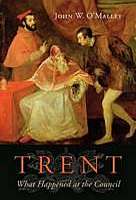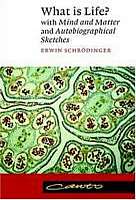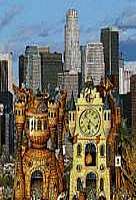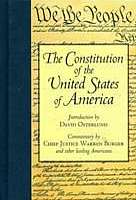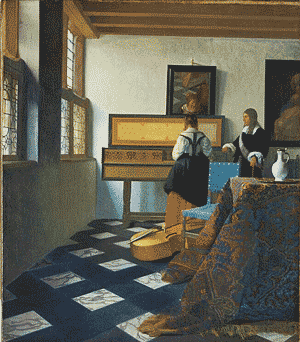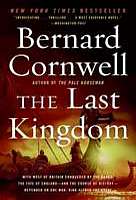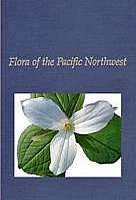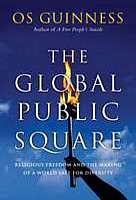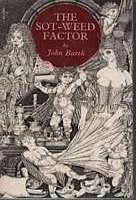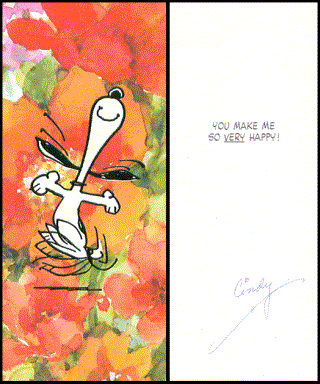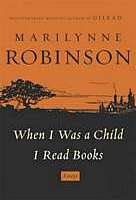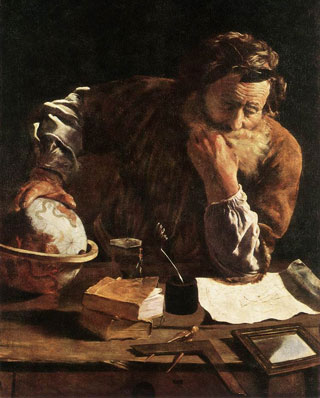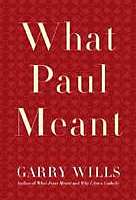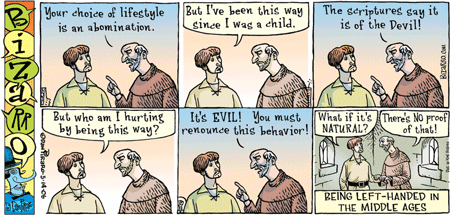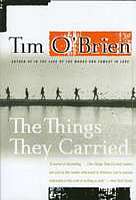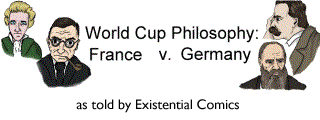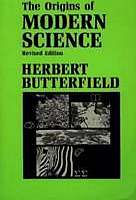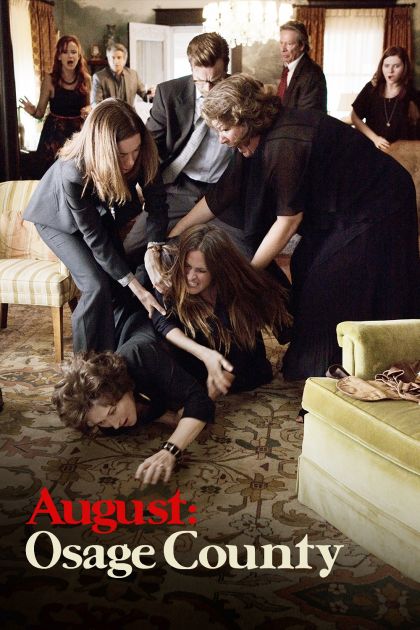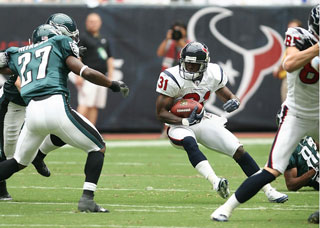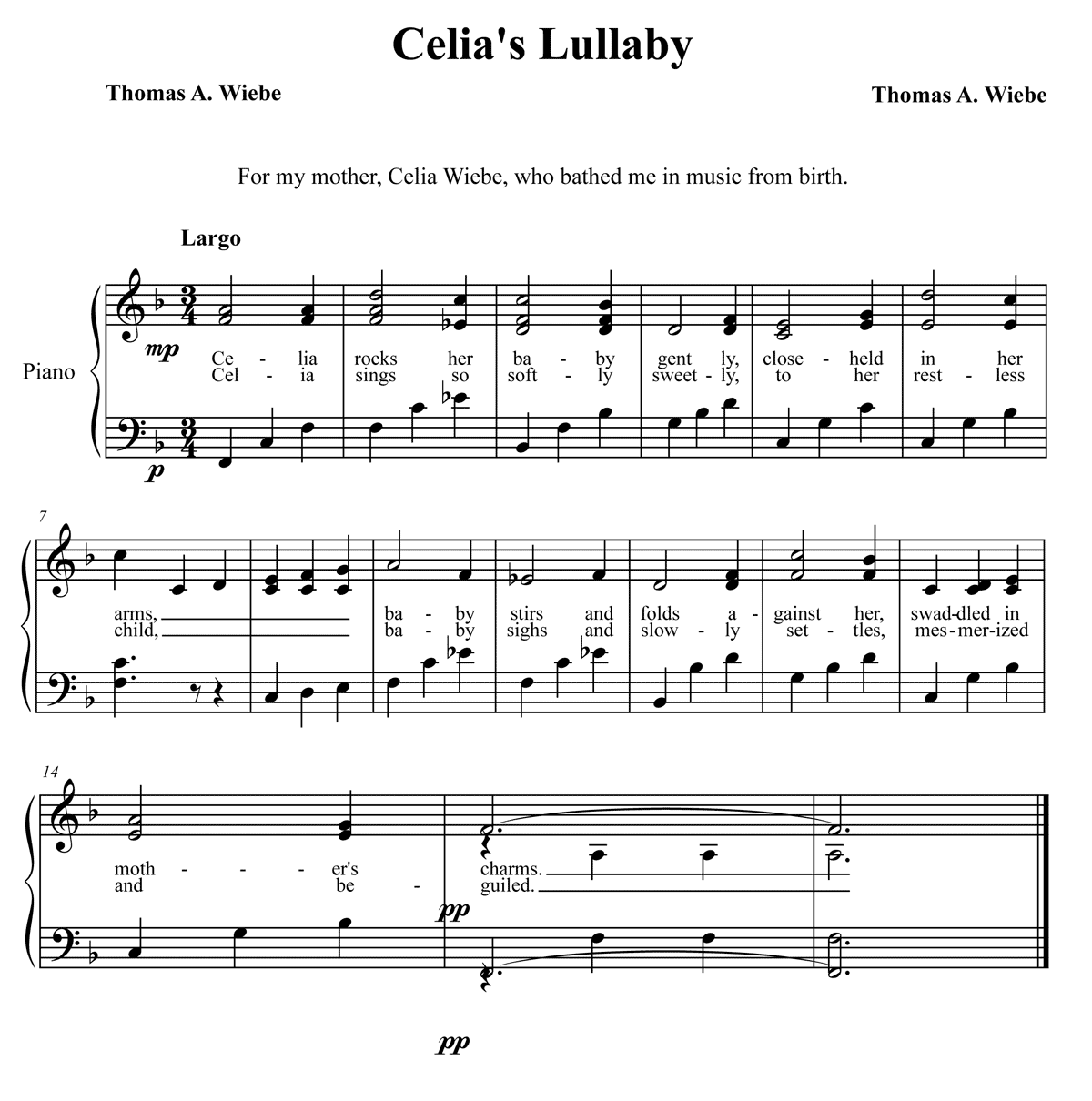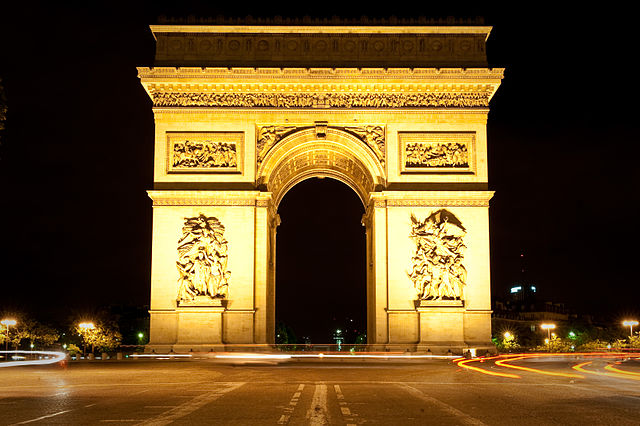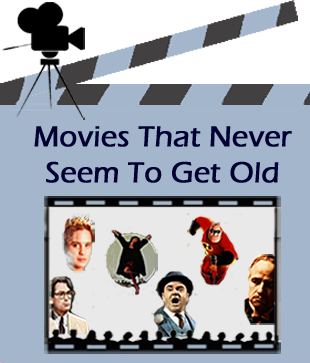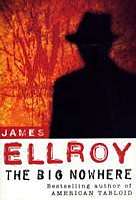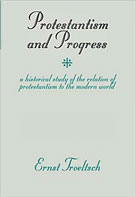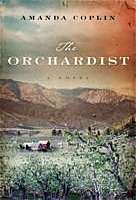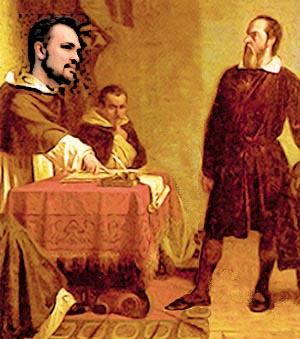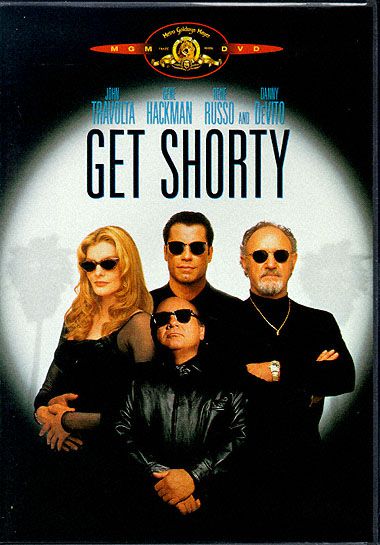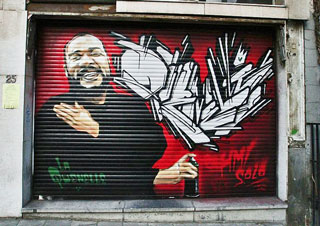 Genres
Genres
Trent: Too little, too late
Trent: What Happened at the Council, is a well-researched and well-told history of the Council of Trent, the mid-sixteenth-century Counter-Reformation centerpiece which produced the Catholic Church's response to the Protestant Reformation. This acount is carefully grounded in the complex politics of its times, placing the history of the Council in the balance- of-power tug-of-war, not just between reform movements within and without (Protestants) the Church, but among the nascent Ottoman Empire, the English Reformation, the Holy Roman Empire, the Papal States and the French monarchy.
The physical sublety of life
I recently re-read portions Erwin Schroedinger's amazing little book What is Life?, which was a post-war stimulus for a number of physicists to switch from physics to biology and look hard for a physical understanding of living organisms.
Hieronymus Bosch in L.A.
As a relatively new Angeleno, I thought it would be fun to read a detective novel that took place in Los Angeles. The Harry Bosch novels by Michael Connelly more than fit the bill. Hieronymus Bosch, is a Los Angeles police detective, and his stories take place mostly in Central, West Los Angeles and the San Fernando valley, the three areas of Los Angeles I am most familiar with.
So slender a thread
In one good hour the U.S. Constitution can be read from front to back. It is written in relatively clear language and still has the capacity to surprise.
The Sylmar Scribbler gets a new name
The Sylmar Scribbler has a new name: The Oregon Scribbler.
Cindy and I are preparing to re-locate back to Oregon, in the Portland area, next year. We will be leaving Sylmar. We love living here. The weather is amazing. But changes are afoot. My thoughts are already turning to Oregon, where we have deep roots; I felt a name change for my website was in order, to celebrate our impending return.
The new website address is oregonscribbler.com. If you use the old sylmarscribbler.com address, it will seemlessly redirect your request to the new address, so no worries, but please change your bookmarks, etc. to the new address when you can. Vielen Dank!
Did Vermeer do it with mirrors?
 In his book Secret Knowledge: Rediscovering the Lost Techniques of the Old Masters, painter David Hockney has suggested that Vermeer and other hyper-realistic painters like Caravaggio used optical projection techniques to assist in the production of their startlingly real paintings. This has been met with a good deal of skepticism in the art world, in particular because the means and tools for the technique are not forthcoming.
In his book Secret Knowledge: Rediscovering the Lost Techniques of the Old Masters, painter David Hockney has suggested that Vermeer and other hyper-realistic painters like Caravaggio used optical projection techniques to assist in the production of their startlingly real paintings. This has been met with a good deal of skepticism in the art world, in particular because the means and tools for the technique are not forthcoming. The Last Kingdom
Bernard Cornwell's The Last Kingdom series, ever growing, takes place around the reign of King Alfred the Great of England, and describes the forging of Saxon and Norse territories into the the fledgling nation of England. It is generally solid historical fiction, in that it fleshes out a historical era with care, and adds a somewhat plausible adventure story to liven up the slow turn of historical events. The main character, Uhtred of Babbenburg, like, say, Little Big Man of the Wild West, experiences and absorbs all of the main cultures of the time, providing a sturdy historical vehicle for Cornwell's tales.
Of ovules and ovaries
Flora of the Pacific Northwest is an excellent dichotomous key of indigenous regional flora. It served as one of my texts for a college class in Systematic Botany, which I feared would be deathly dull, and so proved the lectures, but the laboratory unexpectedly turned out to be a rewarding journey exploring the world without and the world within.
Halting steps to soul freedom
Os Guinness' The Global Public Square oscillates between a Utopian call for a universal human rights and a sectarian application of those rights, as if the author was of two minds, wrestling with the views of Roger Williams and James Dobson.
If I ruled the world
The old high school essay theme, "If I Ruled the World," endures long after the writing struggles of adolescents fade into adulthood. My current response is simple:
If I ruled the world,
I would step down;
one less autocrat,
one less crown.Life, education, and life-long learning
We each are given a precious life and can choose to do with it what we will. We can act in our natural self-interest and seek safety, material wealth and pleasure, or we can act outside of our direct interests, enriching our lives through the consideration of others. Our lives are most meaningful and worthwhile when we love others. The elements of life to be savored most are those that are founded on the humble idea that we are all human beings who are worthy of consideration.Candide in Maryland
The Sot-Weed Factor is a satirical tour-de-force with so much going on that I could hardly follow it all. The style is bawdy, witty, and often funny, a full-fledged imitation of a 17th century novel, complete with the full English vocabulary of the times, which by itself is a welcome challenge to parse. It has been described as a picaresque novel, and the main character is Eben Cooke, an over-educated and under-employed poet and virgin, a Candide-like character constantly bewildered by the world, swept along by events, too curious to make a decision about anything.
Milestones of our courtship
While doing some spring cleaning, Cindy came across some discrete milestones of our courtship, perhaps a short and selective history of Cindy’s path to my heart, assisted by her pal Snoopy.
The capacious heart of Marilynne Robinson
Every few odd years Marilynne Robinson has produced a book of essays, notably Absence of Mind and The Death of Adam. The latest arrival is When I was a Child I Read Books: Essays. The best of Robinson shines in these latest essays: In them she lays out her vision of the American Dream, celebrating the strengths of the American way of life, marked by its liberality (individual freedom), sense of community, and generosity, each informed by a non-sectarian respect for the soul.
Why read history?
Adam Gopnik recently asked: Does it help to know history? Here is the first part of his answer:The best argument for reading history is not that it will show us the right thing to do in one case or the other, but rather that it will show us why even doing the right thing rarely works out. The advantage of having a historical sense is not that it will lead you to some quarry of instructions, the way that Superman can regularly return to the Fortress of Solitude to get instructions from his dad, but that it will teach you that no such crystal cave exists. What history generally “teaches” is how hard it is for anyone to control it, including the people who think they’re making it.
The full essay can be found here.
Paul, simply
In What Paul Meant, Garry Wills translates the authentic Pauline letters himself, and combines a careful translation of the koiné Greek with modern scholarship to suggest that Paul, who is the modern intellectual's favorite whipping boy as the man who distorted Jesus' message, is in fact a faithful interpreter of the Jesus of the Gospels.
La main gauche est maladroit
I came across this provocative double-entendre comic from the great Bizarro Comics. As a left-hander, I laughed my head off.
The burden of combat
O'Brien's Vietnam combat experience and facility as a writer helped to illuminate the pervasive fear he and other combat veterans experienced, and the resulting distortions it had on their behavior. I found it difficult and compelling reading. It is a set of related vignettes, short-story-like, that explore the short bursts of violence and the long periods between fighting that weighed upon the soldiers of this combat infantry platoon. The loss of a comrade produced deep and long-lasting emotional effects for these men, including fantasies inspired by perhaps mis-placed guilt: 'If I only had done this, my comrade would still be alive.'
World cup philosophy
My brother Peter showed me a comic from the witty Existential Comics that captured the Zeitgeist of the world cup this year, or is it l'esprit du temps? Such questions are to be decided on the pitch.
The Origins of Modern Science
Herbert Butterfield, in his book The Origins of Modern Science, tells the story of the development of modern science by focusing on the ideational changes in what is now referred to as science from the late Middle Ages until the advent of the French Revolution, with primary emphasis on the development of the modern understanding of motion. This is a brilliant choice, as it was the development of a robust physical and mathematical model of motion that allowed Newton to unite terrestrial and astronomical physics into a universal set of physical laws describing mechanics.
Movie Review, Title August: Osage County, Studio The Weinstein Company, Rating 2.5,
Days of Our Lives has an opening on their writing staff
August: Osage County is a tale of a family that lives in inherited emotional pain, most of them whom lash out and hurt rather than coming to help each other. There is some hint of redemption: Two in this circle become lovers, almost too late in life, finally finding some solace in each other and starting to create a life for themselves, moving against the unloving spirit that surrounds them.
Punctuated equilibrium
American football combines two of the worst things in American life: It is violence punctuated by committee meetings. – George Will, occasionally lucid, occasionally witty. Re-quoted from Lexington, the Economist.
Vox de intellectu – the voice of understanding
"There is always an easy solution to every human problem - neat, plausible, and wrong."(H.L. Mencken, Mencken Chrestomathy, p. 443 )
 is a brand-new website dedicated to presenting and analyzing news and public policy. Rather than oversimplify for the sake of concision or demagoguery, Vox.com intends to provide more depth of coverage in an accessible way. Ezra Klein, a well-known journalist, leads the effort.
is a brand-new website dedicated to presenting and analyzing news and public policy. Rather than oversimplify for the sake of concision or demagoguery, Vox.com intends to provide more depth of coverage in an accessible way. Ezra Klein, a well-known journalist, leads the effort. Celia’s Lullaby
My mother, Celia Wiebe, has loved music for as long as I can remember. She often played music on the record player when we were growing up, mostly classical, and encouraged her children from their earliest ages to listen and to participate. She also sang around the house, and with her children; sometimes she sang solos or duets with my father in church. Her soprano voice sounded wonderful to me when she sang.Paris before the age of parkour
Memories of my first trip to Paris as a young soldier, with several friends, wherein we fall in love with the City of Lights, and inadvertently almost invent parkour.Movies that never seem to get old
Re-watching a movie one night, it struck me that of the movies that I return to over the years, not all of them are great movies, at least based on typical top-ten criteria. Yet these for me are the movies that never seem to get old.Nightmares in L.A.
I decided to read one of James Ellroy's gritty L.A. noir detective novels. His Black Dahlia and L.A. Confidential were both made into films, the latter a very good one. Unfortunately, The Big Nowhere turned out to be not just gritty, but pornographically cruel and soulless.
The origins of modern society
Ernst Troeltsch was a fin de siècle Protestant theologian who wrote Protestantism and Progress: A Historical Study of Protestantism and the Modern World. This work, along with his friend Max Weber's The Protestant Ethic and the Spirit of Capitalism, both written just before World War I, are reasoned historical treatments of the influence of Protestantism on the perceived and potential progress of Western society. They provide effective contrast to the often simplistic and one-sided efforts by Protestant Evangelicals to do the same, such as Francis Schaeffer's How Should We Then Live?
Watching Woody Allen movies – or not
When I first met my future wife, one of the things we quickly found in common was that we both enjoyed Woody Allen movies. Over the years, we watched perhaps half of his movies together, until he started a public relationship with Mia Farrow's adopted daughter Soon-Yi Previn. I was appalled by this, even though he wasn't her adopted father, and technically it was not incest, I felt he had crossed the line regarding his responsibility as an adult and a 'parent', whatever the legalities. I stopped watching his films for some period.
The many ways of misusing quantum physics
Doctor Moriarty, that is physicist Phil Moriarty, holds forth on the various ways of misapplying quantum mechanics, to philosophy, religion, and just about anything but the world of the atom for which it was constructed. He is charmingly cranky about such "Woo".
The heart of the orchard
This is a well-structured novel of grief and solitude and of the damage of indifferent manipulation and violence, balanced against the friendship and care that can heal. The author depicts the inner life of people who are mostly isolated, via the point of view of an orchardist, as lonely, sometimes peaceful, and sometimes self-delusional or unaware.
Is the selfish gene dead?
David Dobbs recently suggested that the 'selfish gene is one of the most successful science metaphors ever invented; unfortunately, it’s wrong.' He purports to uncover a scientific trend in genetics that trumps the understanding of the central role the gene plays in biological evolution. To parrot the author, unfortunately, he’s wrong.My favorite inquisitor
 Since all other than orthodox is heretical by definition, it is thereby 'Bad Religion.' Ross, a practicing Catholic, argues that Christianity is a highly paradoxical religion whose orthodox views provide a necessary and hard won synthetic narrative providing the one true way. The argument is not very compelling, particularly as it contains the usual demagogic description of American society as corrupted, long in decline, whose only salvation is embracing his orthodoxy. (Yawn ... the ancient clarion call of the entrenched and the reactionary.)
Since all other than orthodox is heretical by definition, it is thereby 'Bad Religion.' Ross, a practicing Catholic, argues that Christianity is a highly paradoxical religion whose orthodox views provide a necessary and hard won synthetic narrative providing the one true way. The argument is not very compelling, particularly as it contains the usual demagogic description of American society as corrupted, long in decline, whose only salvation is embracing his orthodoxy. (Yawn ... the ancient clarion call of the entrenched and the reactionary.)Pocket Review, Title Get Shorty, Studio MGM/UA, Rating 4.5,
Get Shorty: A movie that never gets old
The wry premise of this movie: the best training for a Hollywood producer is loan-sharking.
Quelle est la quenelle?
French footballer Nicolas Anelka, who plays in the English Premier League, has gotten international attention by using the quenelle gesture as a goal celebration, a reverse Nazi salute. The gesture was created by controversial French comedian Dieudonné M’Bala M’Bala, who makes openly anti-Semitic statements (Sample: “When I hear Patrick Cohen speak, I think to myself: Gas chambers … too bad they no longer exist.” Cohen is a French journalist who is Jewish.)


 No matter how righteous a war, it's a terrible, sad and awful thing. Sometimes the reasons are defensible. But most of the time, they're not.
No matter how righteous a war, it's a terrible, sad and awful thing. Sometimes the reasons are defensible. But most of the time, they're not. READING
READING ARCHIVES
ARCHIVES CATEGORIES
CATEGORIES QUOTES
QUOTES